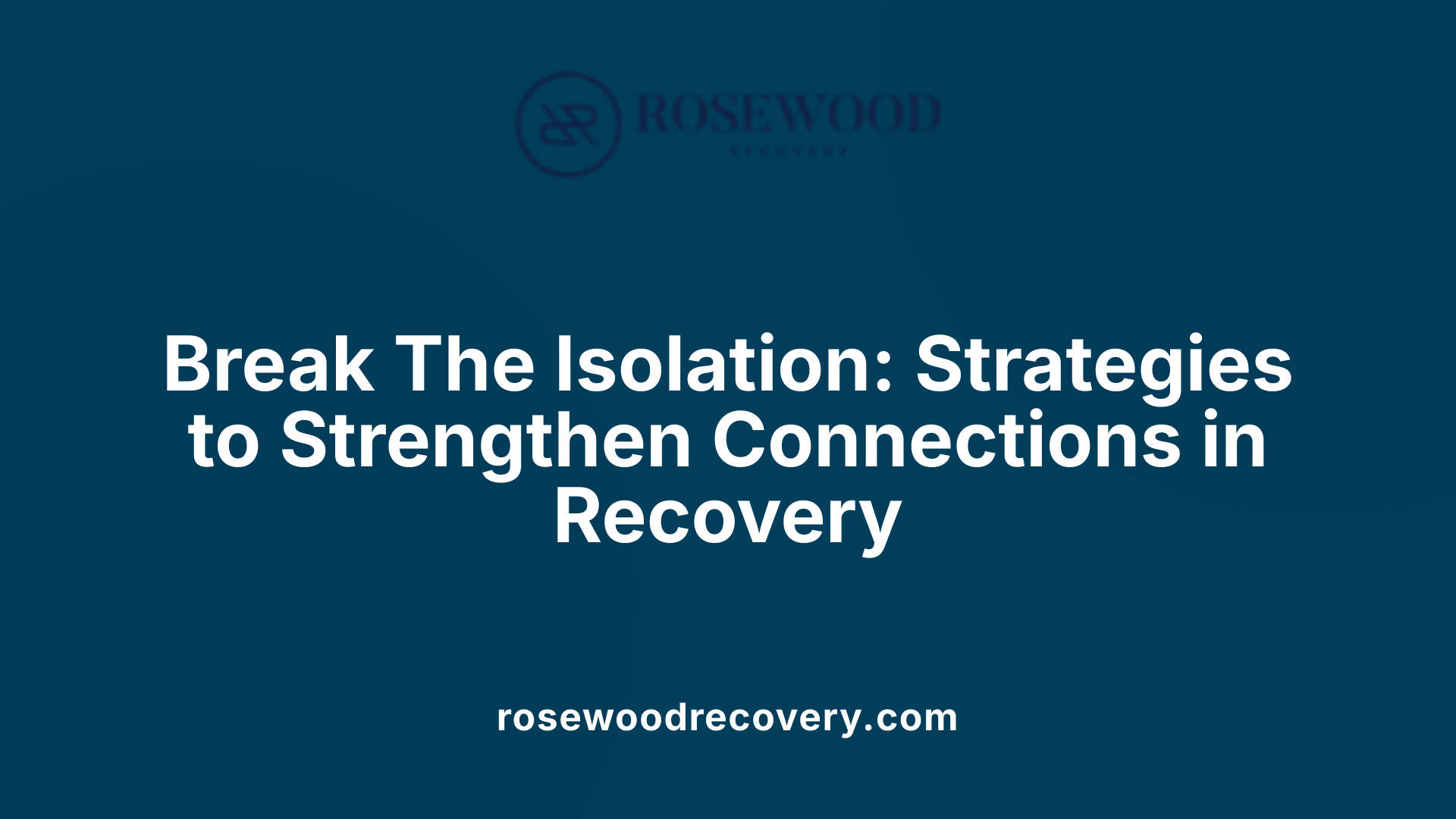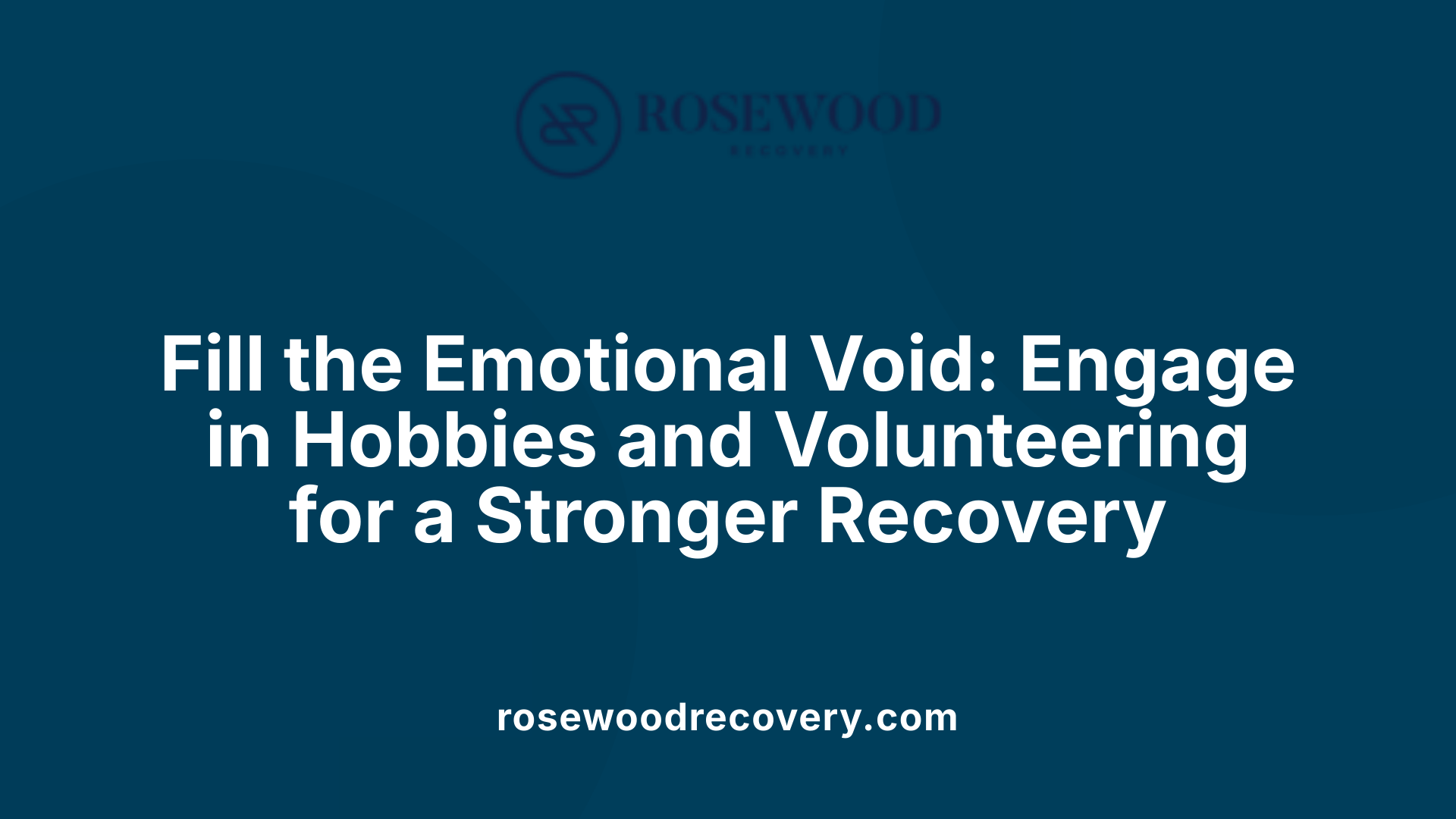Understanding and Addressing Loneliness in Recovery
Loneliness is a common experience during the recovery journey, often arising from lost relationships, lifestyle changes, and emotional vulnerability. Recognizing its prevalence and potential impact on sobriety is crucial. This article explores effective strategies and emotional management techniques to prevent and cope with loneliness, ensuring a stronger foundation for lasting recovery.
The Impact of Loneliness on Sobriety and Mental Health

How loneliness endangers sobriety and can lead to emotional relapse.
Loneliness is a common experience during early recovery from substance use, but it can pose serious risks to maintaining sobriety. When individuals feel disconnected from others, they may struggle with intense feelings of isolation, which can intensify emotional vulnerabilities. This emotional distress often leads to emotional relapse, where old triggers and cravings resurface, making it harder to stay sober. The first stage of relapse is frequently driven by feelings of loneliness and despair, highlighting the importance of fostering connections.
Disconnected individuals might resort to substances as a form of self-medication to escape feelings of isolation. Therefore, building a robust support network is crucial. Support groups, counseling, and reconnecting with family or friends serve to create a sense of belonging that discourages emotional relapse. Engaging in sober activities and making amends can also mitigate loneliness, reinforcing resilience in recovery.
The link between loneliness and health problems such as depression, anxiety, and poor sleep.
Research shows that loneliness is not just an emotional challenge but also a health hazard. Among people with substance use disorder (SUD), loneliness is associated with increased pain perception, depression, anxiety, and reduced sleep quality. These health issues can complicate recovery, creating a cycle where poor mental health fuels further loneliness and vice versa.
Individuals battling loneliness often experience low self-esteem and suicidality, which can reinforce their feelings of despair. Addressing loneliness with mental health support, active engagement in social situations, and self-care routines—such as exercise and mindfulness—can help improve overall health. Proper nutrition, sleep hygiene, and therapy are essential components in maintaining physical and emotional well-being during recovery.
Why loneliness is more than just feeling sad—it's a dissociation between desired and actual social connections.
Loneliness extends beyond mere sadness or loneliness; it is rooted in a discrepancy between an individual's social needs and their actual social experiences. This dissociation means that even if a person is physically surrounded by others, they may still feel deeply isolated if their emotional needs are unmet.
According to Dr. Stephanie Cacioppo, loneliness is about the gap between what people want from relationships and what they actually receive. It depends on subjective perceptions rather than physical proximity. This understanding helps clarify why some may feel lonely despite being in social settings, emphasizing the importance of meaningful interactions.
In recovery, recognizing this gap encourages individuals to actively seek quality connections—whether through support groups, community activities, or deepening existing relationships to achieve genuine emotional bonds.
Strategies to Overcome Loneliness in Recovery
Overcoming loneliness involves a multifaceted approach. Establishing a support network through participation in mutual-help groups like AA or NA is fundamental. These settings foster shared understanding and community, reducing feelings of isolation.
Engaging in community activities such as volunteering, joining clubs, or taking classes provides opportunities to meet like-minded individuals. Adopting pets can offer companionship and purpose. Rebuilding relationships through honest communication and making amends helps repair emotional bonds.
Personal care routines, including mindfulness practices like meditation and journaling, help manage emotional distress. Developing new hobbies and pursuing personal goals can foster a sense of achievement and self-worth.
Remaining vigilant against toxic relationships, setting healthy boundaries, and limiting social media use prevent additional feelings of social disconnection. Sometimes, professional counseling can address deep-seated emotional issues, providing tailored coping strategies.
Relevant Data in a Summary
| Aspect | Details | Additional Info |
|---|---|---|
| Common causes of loneliness | Lost contacts, lifestyle changes, stigma, difficulty making friends | Emphasizes need for active social engagement |
| Emotional effects | Depression, anxiety, low self-esteem, suicidal thoughts | Resilience-building activities essential |
| Connection strategies | Support groups, community service, hobbies, pets | Combining social and personal growth tactics |
| Impact on health | Increased pain, poor sleep, relapse risk | Addresses physical and emotional health |
| Recovery support | Counseling, making amends, community involvement | Focuses on meaningful engagement |
Addressing loneliness comprehensively helps safeguard mental and physical health, ensuring a more stable and enduring recovery process.
Creating a Supportive Environment for Lasting Recovery

Why might someone feel lonely after quitting alcohol, and what can be done to address this?
Many individuals experience loneliness after stopping alcohol because social environments often involve drinking, making it difficult to maintain familiar routines and relationships. Early recovery can also bring about emotional struggles such as depression and isolation, especially if old friendships fade or become unhealthy. To combat loneliness, it’s helpful to develop new social habits that do not rely on alcohol. Joining support groups, community activities, or hobbies can help build meaningful connections. Engaging in self-care activities like exercise, mindfulness, and hobbies fosters emotional resilience. Additionally, seeking support from friends, family, or mental health professionals offers reassurance and guidance, which is vital in navigating feelings of loneliness and creating a strong support network.
What practical steps can help rebuild relationships and foster social connection?
Rebuilding relationships involves honest communication and efforts to reconnect. Making amends where needed and engaging in shared activities can rebuild trust and strengthen bonds. Regular contact with supportive family and friends—through calls, visits, or joint activities—can reignite connections. Participating in community groups, hobby clubs, or recovery support groups provides opportunities to meet likeminded individuals and form new supportive relationships. Volunteering not only offers a sense of purpose but also introduces individuals to others who share similar values. Over time, these practical steps help restore social support networks, which are crucial for emotional health and relapse prevention.
How do activities like hobbies and volunteering help fill emotional voids?
Hobbies and volunteering serve as outlets to fill feelings of loneliness by giving a sense of purpose and achievement. Engaging in creative activities or learning new skills stimulates the mind and boosts self-esteem. Volunteering connects individuals with others through shared values, creating meaningful social bonds and fostering a sense of belonging. These activities distract from loneliness and boredom, which are common triggers for relapse, while also helping to establish new routines supportive of sobriety. They activate positive brain chemicals like endorphins, which elevate mood and emotional resilience, making relapse less likely.
What role does self-care play in managing loneliness?
Self-care is fundamental in managing loneliness because it promotes emotional stability. Practices such as mindfulness, meditation, journaling, and relaxation techniques help reduce anxiety and foster inner peace. Being kind to oneself and forgiving past mistakes build self-compassion, reducing feelings of shame that often accompany loneliness. Maintaining healthy routines—like proper nutrition, regular exercise, and adequate sleep—supports overall well-being. They reinforce resilience and help prevent emotional lows that can lead to loneliness or relapse. Developing self-awareness and setting personal goals also boost confidence, enabling individuals to handle emotional challenges more effectively during recovery.
| Strategies to Combat Loneliness | Key Activities | Benefits | Additional Support |
|---|---|---|---|
| Joining support groups | Therapy sessions, peer meetings | Emotional connection, shared experiences | Inclusion in alumni programs |
| Rebuilding relationships | Making amends, regular contact | Trust, social support | Family counseling, community involvement |
| Engaging in hobbies and volunteering | Art, sports, community service | Purpose, social bonds | Connecting with like-minded individuals |
| Practicing self-care | Meditation, journaling, routines | Emotional stability | Professional counseling, mindfulness apps |
Building a support network is vital during recovery. It includes reconnecting with family, making new friends through social activities or sober clubs, and participating in support groups. These connections provide ongoing encouragement, accountability, and emotional reinforcement, which are essential in reducing feelings of loneliness and maintaining sobriety.
Fostering a Caring and Connected Recovery
Overcoming loneliness during recovery is a vital step toward sustaining sobriety and fostering emotional well-being. Building a strong support network through participation in support groups, maintaining meaningful relationships, and engaging in fulfilling activities can create a sense of belonging and purpose. Understanding the emotional challenges involved and proactively addressing them with compassion, therapy, and community involvement helps individuals develop resilience. Remember, recovery is not just about abstaining from substances but also about restoring connections—with oneself and others—that nurture hope, confidence, and a thriving sober life. Patience, persistence, and self-kindness are key to transforming feelings of loneliness into opportunities for growth and connection.
References
- Coping with Loneliness in Early Recovery - The Berman Center
- Ten Ways to Combat Loneliness in Recovery
- Loneliness in Recovery: Overcoming Isolation & Finding Support
- 5 Ways To Overcome Loneliness In Addiction Recovery
- How to Overcome Loneliness During Addiction Recovery
- How to Cope with Feelings of Isolation and Loneliness During Short ...
- Facing Loneliness in Recovery: Building a Life of Connection
- Overcoming Loneliness In Addiction Recovery




